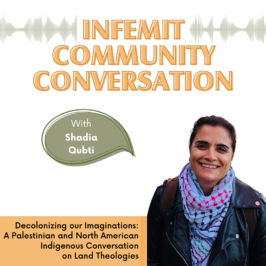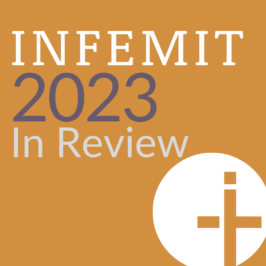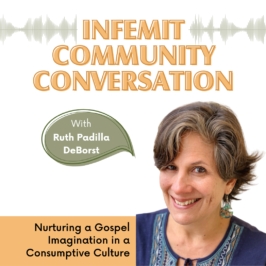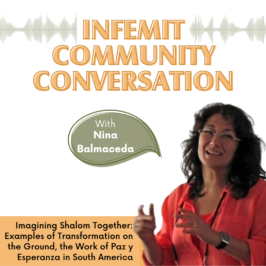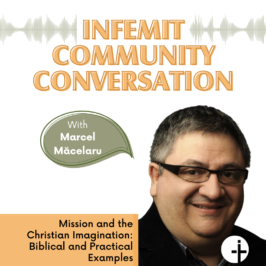By Menchit Wong
Transformational Development Course and Gospel, Culture, and Asian Churches Forum (GCAC)
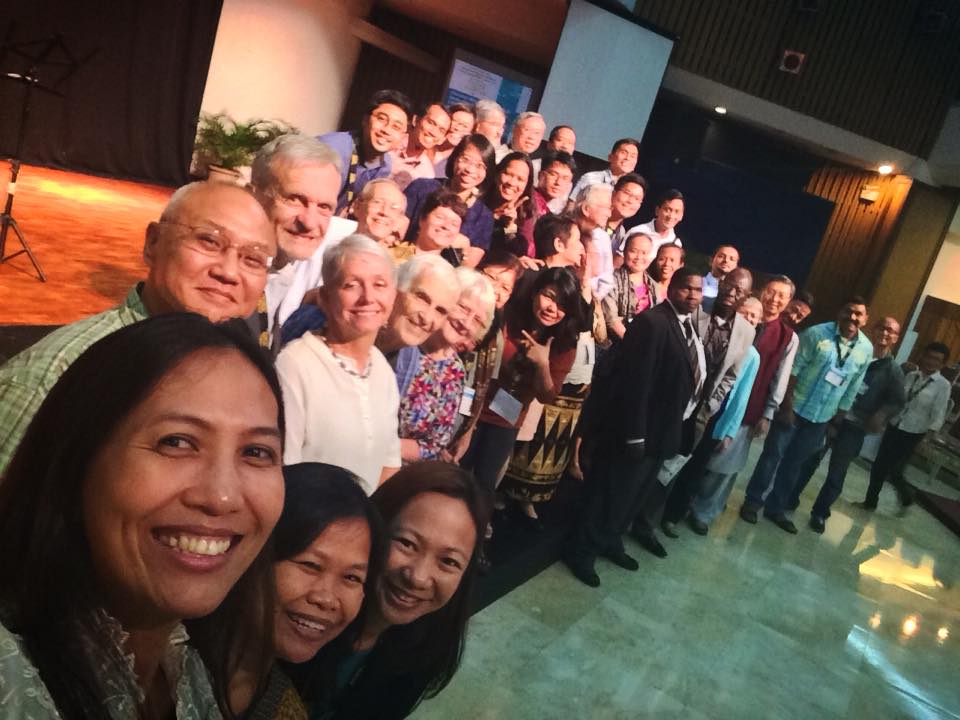 Transformational Development Course: September 21 – October 2, 2015
Transformational Development Course: September 21 – October 2, 2015- Gospel, Culture, and the Asian Churches Forum: October 2 – 3, 2015. “Christian Minorities under Pressure; Life and Witness in Restricted Contexts.”
Background:
During the Stott Bediako Forum held in October 2014, current members of INFEMIT Asia met and identified the need to raise up a new generation of mission leaders and scholars. Dr. Melba Maggay, one of INFEMIT’s honored members, proposed to offer ISACC’s two conferences as venues for these new scholars for deep study and reflection, fellowship, and leadership development to further integral mission. Dr. Maggay is the Executive Director of ISACC (Institute for Studies in Asian Church and Culture). Thus, in October 2015, these two training events were held in Manila, Philippines. The first event was the two-week TRANSDEV Course (Transformational Development Course) run by ISACC, held from September 21 to October 2, 2015. The second event was the Gospel, Culture and Asian Churches (GCAC) Forum, held on October 2nd and 3rd, 2015.
TRANSDEV 2015
TRANSDEV Course is an annual certificate course designed for leaders and practitioners to deepen their integration of faith in ministry practice, especially in doing culturally-sensitive development work. This two-week certificate course helps participants to have a better grasp of holism and its socio-cultural contexts. It also provides a toolkit of practical approaches for development work. TRANSDEV annually assembles a team of instructors who are a blend of multi-disciplinary and multi-cultural scholars and practitioners. Themes of the modules include “Integral Mission and Development Work: A Look into the Theological and Socio-Cultural Perspectives in Doing Development” and “Practical Approaches in Poverty reduction and Social Change.”
There were 18 total participants came from Zimbabwe, Pakistan, Myanmar, Singapore, the United States and the Philippines. Most were senior managers from the Philippines representing faith-based development organizations, such as KMBI, Norwegian Mission Alliance of the Philippines, and Compassion International. One of them heads a social service arm of a church in Cebu, and another is an American missionary working alone among the Kalinga tribe in the Cordilleras. The quality of this year’s participants has been at a fairly high level. They engaged well, reflecting collegially on the issues they face in their organizations and various contexts.
The course featured, besides the usual modules, a great deal of coaching on how Integral Mission works in actual operations of the participants’ organizations. Apart from the renewed emphasis on organizational issues — management, fund-raising and financial accountability, and avoiding mission drift, — time was given to participants to introduce their organizations and the struggles they face. Especially heart-tugging was the Pakistanis’ presentation on their work among children in a remote village, highlighting the plight of girls who do not get education and are imprisoned for their Christian faith. Found to be most challenging were the leadership and transition crisis faced by two organizations. The participants from Zimbabwe and the country directors of the Sudan Interior Mission and World Christian Outreach found the discussions so useful to their organizations that they asked if the course could be done for Africa as well.
A unique feature of this year’s course was the participation of Dr. Jose Ramon Alcantara, a university professor who is Chair of the Board of Amextra, a community development organization in Mexico. He came to learn about the course structure, since Amextra is interested in partnering with ISACC in doing a similar training among faith-based organizations in Mexico. He wrote recently: “I want to thank you so much for your kindness and the experience of sharing the seminar and the Conference with the wonderful people of your students and team. It gave me new perspectives for my work with Amextra. I still have to share this with Eugenio, the director, to see how we can continue our relationship in a productive way. For now, I just wanted to express my gratitude to God and you.”
From the feedback, we see that participants found the integration programmed at the end of each day to be very helpful in digesting the theological and social development perspectives and seeing the practical applications for their development practice. They also wished for more “exposure trips” – they were particularly impressed by 1) the gifted woman entrepreneur, helped by Center for Community Transformation to grow her junkyard business, who now employs about 50 workers and leads those workers in bible studies; 2) the spiritual atmosphere and holism they witnessed in the work of Samaritana Transformation Ministries among prostituted women, and 3) the very innovative curriculum of a school in the slums of old Balara which trains its pupils in leadership, financial literacy, and entrepreneurship and represents a culture-changing school whose initiatives and pedagogies are extraordinarily in-context, ingenious, and far ahead of even some of the best schools in the country.
Here are some of the comments from participants:
“The training is very encouraging. Speakers are excellent. All the people involved are warm and the place as well. Most of the topics have a strong effect and influence on how I envision myself partaking in God’s vision.”
“The whole package is an eye opener and liberating in a way that my faith is being checked and re-aligned with the true meaning of being Christian — which is using Jesus’ lens in working with the poor and to those in power.”
“This training was so helpful to me. I truly thank God for bringing me to this training. I am now an equipped manager.”
“Dr. W. A. Dyrness came up always with a strong theological principles and understandings to put light on the different dimensions of mission work.”
“The transformational development course is truly empowering me and is making me grow in faith and thoughts.”
“This really helped me a lot especially in community development and trauma care. Thank you very much. God bless ISACC more and more abundantly.”
“This training is a blessing! …I believe this training is a preparation for us too for greater things God wanted us to do.”
“Thanks so much to ISACC for inviting us here. I have learned the things I never anticipated. Thank you ISACC for your love.”
“It was transforming.”
“Very well conducted.”
“This learning mostly was new to me and I will implement in my organization.”
“I am growing in thoughts and receive confidence for the ministry of God.”
All of the foreign participants were enabled to come through scholarship fees sourced from a gift of a longtime friend of ISACC’s – David Bussau of Maranatha Trust. It is significant that the local participants contributed to cover the bulk of the expenditures in running the course itself, an indication of its sustainability over the long term. It may be necessary, however, to source funds for the scholarships of those coming from abroad, as it has been found, both in the past and especially this year, that the course has drawing power for many development practitioners who operate in the Asia region and beyond. This is especially needed by those who are coming from indigenous and struggling organizations, or who are coming on their own, without support from their fledgling organizations.
GCAC Forum 2015
The Gospel, Culture and the Asian Churches (GCAC) Forum is a two-day gathering of people engaged in Integral Mission in the Asian region. It is meant to stimulate reflection on issues confronting the churches in Asia, particularly the interface of religion, culture and social development. By serving as a venue for sharpening the witness of churches, GCAC hopes to sensitively engage Asian religious traditions that rival Christianity in philosophical depth and comprehensiveness. Each year, the GCAC Forum focuses on an urgent Asian social issue or culture theme.
The 2015 GCAC Forum took place on October 2-3, 2015 in Manila with the theme, “Christian Minorities under Pressure: Life and Witness in Restricted Contexts”. There were eighty participants, including many from the TRANSDEV course along with other ministry organizations, seminaries and churches in the Philippines and other Asian countries. For this year’s Forum, the focus was on Christian minorities in the region and the issues they face in the light of militant and politicized religions. The task was to find ways to be a living witness in the face of growing restrictions and persecution.
Under the leadership of Dr. Melba Maggay, this year’s GCAC Forum was co-organized by INFEMIT Asia, ISACC, Compassion International, World Vision, Greenhills Christian fellowship and Open Doors International. Leaders from these ministries such as Gift Kanthamanee, Dilsy Arbutante, Lucy Arboleda, Pastor Larry Pabiona, Jing Ocampo, Pia Jingco, Fhabi Ortega and Menchit Wong composed the Organizing Committee, with a huge team of dedicated staff that volunteered their time and expertise for the Forum.
Missiologists and theologians such as Dr. Andrew Walls, Rev. Goh Keat Peng, Dr. William Dyrness and Dr. Jose De Mesa, among others, spoke on the following topics:
- Missional responses in light of current threats
- Churches under pressure: lessons from history and practical implications for churches today
- Missional challenges, threats and opportunities for churches under pressure
- Politically militant religions: theological perspectives and responses
- Guidelines on witness in restricted contexts
Lucy Arboleda, Asia Regional Director of Open Doors International, provided a broad view of persecution through a presentation on an Open Doors global survey, the results of which showed the magnitude and comparative levels of persecution experienced by Christians across the world. Delving further into different restricted contexts, Christian leaders witnessing in Hindu (Dr. Timothy Hwang Tae Yun), Buddhist (Dr. David Lim), Muslim (Pastor Matthew Ling) and Communist (Dr. Jose Alcantara) communities presented case studies on undertaking mission work in their respective countries.
During the latter part of the forum, the 80 participants gathered in breakout groups to discuss implications of persecution and religious restriction in different sectors. The sectors covered were the academe (universities/seminaries), Christian development organizations/civil society organizations, church and mission agencies, and marketplace/media.
INFEMIT Asia fellowship dinner
INFEMIT hosted a dinner with selected participants at the end of the forum to enlist the support of young thinkers and practitioners for future initiatives of the network. About 25 INFEMIT leaders and new entrants brainstormed on possible topics (mostly focusing on the youth) for subsequent meetings of the GCAC forum, as follows:
- Ministry as vocation/calling instead of a career
- Multiplicity of voices (pluralism) affecting self-identity of youth
- Tackling non-biblical inputs that young people absorb
- Need to engage parents and reach young people who grapple with serious issues before their teenage years — need for grounded messaging
- Influencing leaders — contextualization, reaching the grassroots, culture building, translating principles to practical measures
- Promoting unity in diversity
- Discipling/reaching children of separated parents
- Development work as an expression of God’s love, balanced with the desire to fulfill the Great Commission — theological foundations, cases/stories
- Popularizing great literature that is already available
- Promotion of social responsibility, justice, equality
- How to be a workplace minister
- China — learning from churches there
- Engaging today’s youth in ministry
- Reaching migrants
- The Gospel not just as John 3:16 and not just being about the sinner’s prayer, but about Christians living real lives of faithfulness
- Gender issues, particularly view and treatment of women
The group moreover agreed that there is a need to determine the right processes for engaging young people, and to listen and draw out their voices. In relation to these needs, the group identified the following action points:
- Make resources available and able to catch the attention of the young — explore various media; deliver the Word in ways different from what we are used to
- Explore a younger generation-older generation collaboration for the next GCAC forum
- Explore co-creation with young people
